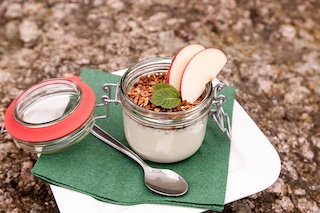Allergies can cast a shadow on daily life, affecting individuals with symptoms ranging from sneezing and itching to more severe reactions. While avoiding allergens is the primary strategy, incorporating allergy relief foods into your diet may provide additional support. Let’s explore a spectrum of foods known for their potential to alleviate allergy symptoms and contribute to overall well-being. 🫐
1. Quercetin-Rich Foods:
- Quercetin is a natural antioxidant known for its anti-inflammatory properties. Foods rich in quercetin include:
- Apples
- Berries (especially blueberries and cranberries)
- Citrus fruits (oranges, lemons)
- Onions
- Broccoli


2. Omega-3 Fatty Acids:
- Omega-3 fatty acids can help reduce inflammation and may have a positive impact on allergy symptoms. Incorporate:
- Fatty fish (salmon, mackerel, sardines)
- Chia seeds
- Flaxseeds
- Walnuts
Suggested: Gluten Intolerance Symptoms
The Power of Vegan Omega-3 Sources
Cell Regenerating and Rejuvenating Foods for a Healthy You
3. Local Honey:
- Some individuals believe that consuming local honey, which contains traces of local pollen, may help build tolerance and alleviate allergy symptoms. However, scientific evidence supporting this claim is limited.
4. Probiotics:
- Probiotics support gut health and may play a role in modulating the immune response. Include:
- Yogurt with live cultures
- Kefir
- Kimchi
- Sauerkraut


5. Anti-Inflammatory Spices:
- Certain spices possess anti-inflammatory properties that may offer relief. Consider incorporating:
- Turmeric
- Ginger
- Cinnamon
6. Local, Seasonal Produce:
- Consuming locally sourced, seasonal fruits and vegetables can expose your immune system to a variety of pollens, potentially reducing sensitivity.
7. Nettle Tea:
- Nettle tea is a herbal remedy that some people find helpful in relieving allergy symptoms. Its anti-inflammatory properties may provide relief.
8. Pineapple:
- Pineapple contains an enzyme called bromelain, known for its anti-inflammatory properties. It may contribute to overall immune system support.
9. Turmeric Milk (Golden Milk):
- Combining turmeric with warm milk and other spices creates a soothing beverage that may have anti-allergic and anti-inflammatory effects.
10. Garlic:
- Garlic is not only a flavorful addition to dishes but also has immune-boosting and anti-inflammatory properties.
Suggested: Gluten-Free Foods and Delicious Alternatives
Jumpstart Your Day: Initiating Your Daily Journaling Routine
Oat Plant: Exploring Its Rich Nutrient Profile
What’s on Your Plate? Foods to Boost Your Gut Health
Navigating Allergies:
- Individual Variability: Allergies can vary significantly among individuals. It’s essential to pay attention to your body’s responses and consult healthcare professionals for personalized advice.
- Balanced Diet: While certain foods may provide relief, maintaining a balanced and varied diet is key for overall health.
- Consultation with Healthcare Professionals: Seek guidance from healthcare professionals, including allergists and dietitians, for comprehensive allergy management.
Incorporating allergy relief foods into your diet can be a supportive strategy for managing symptoms. However, it’s crucial to approach dietary changes with awareness and consult healthcare professionals for personalized advice. By making informed choices and adopting a holistic approach to well-being, individuals navigating allergies can find relief and enhance their overall quality of life. 🌱🥦 #AllergyRelief #NutritionalSupport #WellnessJourney
